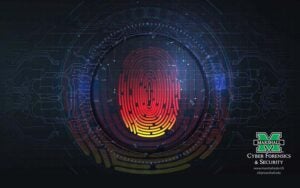Preparing you for a Career
The Marshall University Cyber Forensics and Security (CFS) undergraduate program equips students with the skills and knowledge needed to address today’s most pressing investigative and cybersecurity challenges. This practitioner-focused program emphasizes critical thinking, problem-solving, and effective communication through rigorous coursework and hands-on lab experiences.
Graduates of the CFS program are ready to bridge the cybersecurity skills gap, utilizing industry-standard tools and techniques to secure systems, analyze digital evidence, and defend against evolving cyber threats.
The Cyber Security Skills Gap
The global demand for cybersecurity professionals continues to outpace supply, highlighting a significant skills gap in the field. According to the 2023 (ISC2) Cybersecurity Workforce Study, the global cybersecurity workforce has grown to 5.5 million, an 8.7% increase from 2022. Despite this growth, the study estimates a record-breaking gap of 4 million cybersecurity professionals needed to adequately safeguard digital assets. In the United States, the cybersecurity workforce comprises approximately 1.34 million professionals. However, there are about 755,743 job openings, indicating a significant shortage. This shortage poses substantial risks to national security and the economy, as organizations struggle to find qualified candidates to protect against increasing cyber threats. The Fortinet 2023 Global Cybersecurity Skills Gap Report further emphasizes the impact of this shortage. The report reveals that 68% of organizations face additional cyber risks due to unfilled IT positions, and 84% experienced one or more breaches in the past 12 months, up from 80% in 2021.
These statistics underscore the critical need for educational programs like Marshall University’s Cyber Forensics and Security (CFS) program. By equipping students with the necessary skills and knowledge, the CFS program aims to bridge the cybersecurity skills gap and prepare graduates to meet the growing demand for cybersecurity professionals.
Tools , Labs, and Coursework
Students in the CFS program gain practical experience through dedicated lab sections integrated into all core courses. Using industry-standard tools, students build and refine their skills in a controlled, hands-on environment. Key tools and software include:
- MAGNET Axiom’s Process and Examine for digital forensics.
- Kali Linux, NMAP, and Metasploit for penetration testing.
- Wireshark and Network Miner for network analysis.
- Social Engineering Toolkit (SET) for simulated attacks.
These lab exercises culminate in realistic scenario-driven projects, requiring students to apply their knowledge to solve complex challenges. The program concludes with a comprehensive capstone experience, where students tackle simulated cases, penetration tests, and real-world cybersecurity scenarios, reinforcing major learning objectives.
Program Requirements
Explore our program requirements in the Course CatalogWhere are we located?
The CFS program is housed in the Weisberg Family Applied Engineering Complex (WAEC)—a 155,000-square-foot facility equipped with cutting-edge technology. Located at 1676 3rd Ave, Huntington, WV 25703, the WAEC provides students with access to advanced laboratories and tools used by professionals nationwide.
Also known as the WAEC, students will find the majority of their classes for CFS here at 1676 3rd Ave, Huntington, WV 25703.
